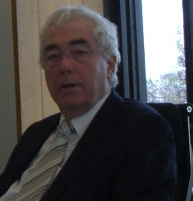
Recent trends in flowering dates in the UK. Credit: The UK Phenology Network
UK flowers have bloomed earlier over the past 25 years than any other period since 1760, threatening pollinating insects and other creatures depending on them for food. An international team including researchers from Cambridge University and the UK’s Woodland Trust found that overall they flowered 2.2 days earlier than in 1910-1934, the previous earliest-blooming 25-year period. The team, led by Tatsuya Amano of Cambridge and Japan’s National Institute for Agro-Environmental Sciences, also found that the current period’s flowering is 12.7 days earlier than the latest-blooming period, 1835–1859.
“There is a clear advance in the time of first flowering in recent decades,” Amano and colleagues write in a paper published online in the journal Royal Society Proceedings B on Wednesday. The timing changes could cause insects to miss out on their usual pollen supplies, in turn affecting birds for which insects and flowers are food sources. “This situation is critical,” Amano and colleagues write, “possibly leading to an increase in extinction risks.”
Their results show that flowering advances 5 days per 1ºC rise in temperature, matching results published elsewhere. They note that this kind of long-term perspective on the effects of global warming is unusual, which can be a problem. “Conclusions about the impact of climate change based on short-term observations can be misleading,” they write. “The 250-year index developed in this study should provide an important context for investigating ongoing responses to climate change.” Read the rest of this entry »








